Shaking Hands with Pol Pot: Richard Dudman Interview (2001)
Dudman's near-death experience in Cambodia: https://thememoryhole.substack.com/p/be-careful-or-your-body-may-disappear
This six-and-a-half hour 2001 interview with Richard Dudman, journalist for the St. Louis Post-Dispatch, contains his reflections on his 31-year career in journalism. This includes his two near-death experiences in Cambodia; the second after meeting with Pol Pot for an "interview." In a bizarre segment (Reel 12), he describes in detail what Pol Pot's handshake felt like, in contrast with other Cambodians.
Contains time codes for skipping ahead to specific reels of the original tape:
0:00 REEL 1: Aspects of family and educational background. Aspects of early training and career in journalism/photography, 1930s. Recollections of period with Merchant Marine and Navy, 1940-1945: joining Merchant Marine as cabin boy; duties; attitude towards first shipping job; duties as chief cook on another ship; joining Navy as officer. Recollections of period as journalist, 1945-: re-entering profession, 1945.
30:00 REEL 2: writing story on case of racial discrimination; posting to Europe and GB to report on Jewish/Zionist emigration for Denver Post; visiting Displaced Person camps; covering the story of the 'Exodus'; style of reporting, 'reportage', 1940s; changes in style of writing from 1950s.
1:00:00 REEL 3: move to work as reporter for St Louis Post-Dispatch, 1950; covering cases of racial discrimination in St Louis; examples of racial discrimination in St. Louis; story of first ever mixed race lunch counter in St. Louis; reputation of St. Louis Post-Dispatch in US; independent stance of paper; visiting China, 1972; meeting with Zhou Enlai.
1:29:00 REEL 4: visit to China; reporting on CIA sponsored invasion of Guatemala; method of getting stories back to St Louis; following Fidel Castro and his forces in march across Cuba to Havana; attitude towards Castro's triumph in Cuba, 1959; attitude of Cuban people towards Castro; reporting on trial of suspected supporters of Batista in Cuba; language difficulties and attitude towards working through interpreter; attempt to get into training camps for Cuban emigres in Guatemala, 1961; visit to border between China and Vietnam to gather information on situation in China, 1961; evidence of American involvement in Vietnam, 1961.
1:59:00 REEL 5: evidence of American involvement in Vietnam, 1961; talking to US aircrew; visit to Laos, 1960; reporting on question of Chinese communist infiltration in Laos; attitude towards American claims of Sino/Soviet expansionist aims in Asia; gaining information on situation in China during visit to Vietnamese/Chinese border, 1961; care taken when using information from American official high level sources; contacts with I. F. Stone who ran a dissident newspaper.
2:29:00 REEL 6: nature of anti-Communist McCarthy period in USA, 1950s; reporting on 'Strategic Hamlets' in Vietnam; attitude towards American policy in Vietnam; taking helicopter flights into combat zones; decision not to wear military clothes or carry arms; belief in importance of maintaining neutrality; witnessing anti-Diem demonstrations by Buddhists in Huey; spread of Vietnam war into Cambodia; entering Cambodia with Elizabeth 'Beth' Pond and Michael 'Mike' Morrow to assess situation.
2:59:00 REEL 7: story of how Beth Pond, Mike Morrow and himself were ambushed by members of United Front of Cambodia (Front Uni National du Kampuchea), 1970; arrest and interrogation; treatment by captors; further interrogation by Vietminh; drive through jungle; decision to tell truth during interrogations; food rations during forty day captivity; efforts to keep fit; improvement in relations with captors.
3:27:00 REEL 8: concern of captors for their welfare; good relationship with captors; occasion when they were required to write down details of their life; evidence of captors influence in towns under American control; story of playing chess with captors; bombing of area by American aircraft; attitude towards lifestyle and military prowess of captors; story of how captors helped Beth deal with menstruation; living conditions; relations between Beth, Mike and himself; hearing news of their imminent release.
3:56:00 REEL 9: farewell dinner with captors and exchange of gifts; release; hitching a lift with South Vietnamese convoy; calling his wife Helen; writing first story on his experiences in captivity; refusing to disclose whereabouts of captors to CIA; attitude and beliefs of captors; American bombing of Cambodia; his family's attempts to get him released; promising captors that they would tell truth about their experiences; impact of period in captivity on health.
4:25:00 REEL 10: attempting to write about experiences whilst seriously ill in hospital; medical problems; reaction of colleagues at SLPD to his return; welcome home party; his wife's attitude towards meeting Beth Pond; arranging visit to Hanoi, North Vietnam; dispersal of troops and equipment to protect them from bombing; interviewing North Vietnamese Prime Minister; evidence of bomb damage; reaction to end of Vietnam war; his assessment of Vietnam war; attitude towards involvement of five American Presidents in the conflict; lessons of war.
4:55:00 REEL 11: impact of Vietnam war on American military policy; question of impact of anti-war movement on American policy and society; treatment of Vietnam veterans on return to USA; declining status of St Louis Post-Dispatch; visit to Phnom Penh with Elizabeth Becker of Washington Post and British academic, Malcolm Caldwell; description of city; difficult relationship with Becker.
5:25:00 REEL 12: 10 day tour of country; events staged by authorities to impress them; lack of contact with Cambodian people; visiting Angor Wat; interviewing Pol Pot; attitude of Malcolm Caldwell towards Khmer Rouge; story of how they were shot at by 'terrorists' and Malcolm Caldwell killed; taking Caldwell's body to British Embassy in Beijing; impact of experience on himself and Becker.
5:55:00 REEL 13: attitude towards rumors of mass executions by Khmer Rouge, 1975-1979; attitude towards common view of Pol Pot and Khmer Rouge; question of 'genocide' in Cambodia under Khmer Rouge; visit to Vietnam in 1993 to meet the General who was behind his capture in 1970; economic changes in Vietnam. Reflections on career and world today: impact of terrorist attacks in USA of 11/Sep/2001 on American government; attitude towards setting up of Military Courts; question of civil liberties.
6:25:00 REEL 14: question of anti-American feeling in world; impact of new technology on journalism and war reporting since 1950s; difficulties faced by local/regional newspapers; contacts with other war reporters; his aim to achieve exclusivity in reporting; dangers of war reporter's job.
-
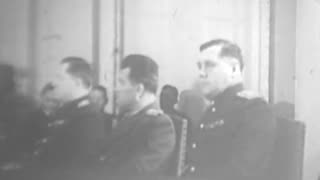 34:43
34:43
The Memory Hole
5 days agoCIA Archives: Communist Imperialism (1961)
4431 -
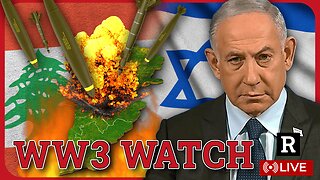 LIVE
LIVE
Redacted News
1 hour agoBREAKING! ISRAEL BOMBS LEBANON, NATO TELLS CITIZENS TO GET OUT NOW BEFORE FULL BLOWN WAR | REDACTED
11,621 watching -
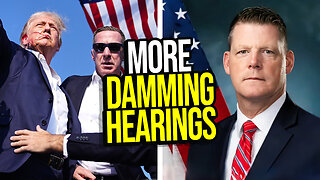 LIVE
LIVE
vivafrei
1 hour agoThe FBI and Secret Service are COMPLICIT in the MIHOP and Cover-Up! Viva Frei Live!
5,267 watching -
 DVR
DVR
HotepTV
2 hours agoWhite Dudes for Harris
7.8K7 -
 1:16:37
1:16:37
Awaken With JP
3 hours agoIt's Fact Checking Season! - LIES Ep. 50
22K112 -
 LIVE
LIVE
Dr David Jockers
35 minutes agoThe Shocking Truth About Saturated Fat
94 watching -
 LIVE
LIVE
Pardon My Take
5 hours agoAlabama HC Coach Duggs Starts His National Championship Run
582 watching -
 LIVE
LIVE
Revenge of the Cis
1 hour agoEpisode 1357: Weird
2,760 watching -
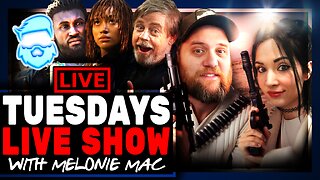 1:44:15
1:44:15
The Quartering
6 hours agoBig Tech ADMITS They Censor Trump, White Guys For Harris Cringe, Mark Hamill Rock Bottom, Olympics
36.3K52 -
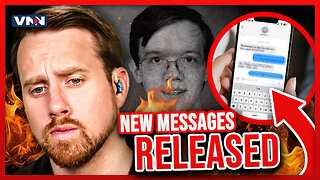 8:58
8:58
Vigilant News Network
1 day agoChilling Leaked Texts from Trump's Counter-Snipers Surface | Beyond the Headlines
11.1K31